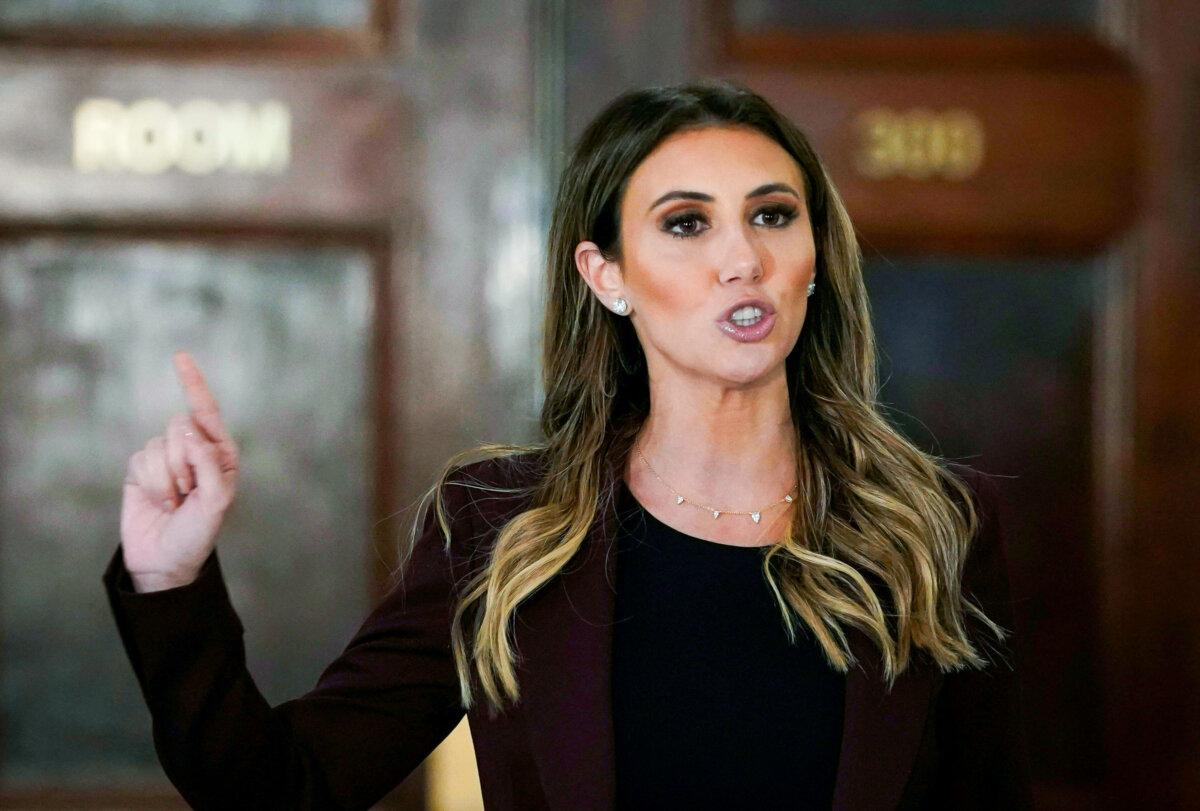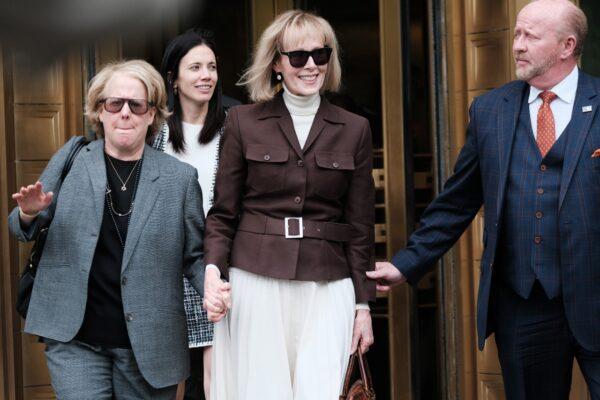Former President Donald Trump’s motion for a mistrial in the E. Jean Carroll case has been denied.
A federal judge on Wednesday denied former President Donald Trump’s motion for a mistrial in the E. Jean Carroll case, which the former president requested on the premise that Ms. Carroll failed to preserve key evidence.
Ms. Carroll’s lawyers have made the purported death threats, which they blame on President Trump’s public remarks, a key reason why their client asked the jury to award her tens of millions of dollars in damages.
Trump attorney Alina Habba filed a request in late January, requesting declaration of a mistrial in light of the missing evidence.
“Mr. Trump’s oral motion and his letter motion (Dkt 271) were denied as lacking any merit,” U.S. District Judge Lewis Kaplan wrote in the order.
More Details
Last month, a jury decided that President Trump must pay Ms. Carroll over $83 million in a case that claimed the former president defamed Ms. Carroll when he denied allegations of sexual assault.
President Trump, who maintains his innocence, has vowed to appeal the ruling, while his attorney, Ms. Habba, asked the judge to declare a mistrial.
Ms. Habba alleged in the letter that Ms. Carroll “failed to take reasonable steps to preserve relevant evidence. In fact, she did much worse—she actively deleted evidence which she now attempts to rely on in establishing her damages claim.”
“Plaintiff recounted to the jury that she received vicious death threats on June 21, 2019, which she directly attributed to President Trump’s June 21, 2019 statement,” Ms. Habba wrote in the letter. “And she sought to substantiate her claim for emotional harm by describing how she felt like an attack would happen ‘right now’ and that her heart would race.”
“However, it cannot be established that these messages existed at all, since Plaintiff deleted them,” she added.

In her letter, Ms. Habba said the deletions are significant because the missing evidence played a key role in Ms. Carroll’s demands.
Ms. Habba then asked the judge to declare a mistrial to preclude Ms. Carroll from seeking damages related to purported death threats or to include an adverse inference charge against Ms. Carroll, which is basically an instruction to the jury to weigh the missing evidence against her.
Judge Kaplan rejected that reasoning. In his Feb. 7 order, he said that while Ms. Carroll had admitted to deleting some of the purported death threats, the details of the deletions remained unclear.
Further, the judge said that President Trump’s attorneys failed to prove that the missing messages would have helped his defense. He also argued that the issue of the deletions was raised too late.
Finally, he said the remedy sought—a declaration of a mistrial—was not appropriate.
“Even if the Court were inclined to grant any relief to Mr. Trump, which it is not, he would not be justified in receiving anything more than what already occurred during trial–than is, cross-examination of Ms. Carroll on her deletion of ESI [electronically stored information] before the jury and arguing those deletions during summation,” Judge Kaplan wrote.
He added that the jury was instructed to consider Ms. Carroll’s deletions during their deliberations.
“The circumstances did not justify anything more,” he concluded.

Lawsuit Background
This legal saga stems from a defamation lawsuit that Ms. Carroll filed over allegedly defamatory comments President Trump made about her in 2019 when she first publicly accused him of sexual assault.
In 2019, Ms. Carroll accused President Trump of having raped her in a dressing room at the Bergdorf Goodman department store in Manhattan in 1995 or 1996.
After President Trump denied Ms. Carroll’s allegations in 2019—saying “she’s not my type”—Ms. Carroll filed a lawsuit accusing the former president of having defamed her. The lawsuit wound its way through state, federal, and appellate courts in New York and Washington, without material consequences.
In 2022, the New York state legislature passed the Adult Survivor Act, which amended state law to give victims of certain sexual offenses a one-year window, beginning on Nov. 24, 2022, to file a civil lawsuit against alleged offenders. Ms. Carroll then filed a second lawsuit on Nov. 24, 2022, under this Act, which went to trial.

A day after the verdict—on May 10—President Trump appeared at a town hall event on CNN, where he called Ms. Carroll a “whack job” and said her claims against him were fake.
At the close of the trial, a panel of nine jurors ordered President Trump to pay Ms. Carroll $83 million in damages.
After the verdict was announced, President Trump took to social media to criticize the decision.
President Trump faces an array of legal troubles, including a total of 91 felony counts across state and federal jurisdictions, coupled with a civil suit in New York that could reshape his business landscape. In 2023 alone, legal expenses drained more than $47 million from President Trump’s campaign funds, according to disclosures with the Federal Election Commission.
He also faces attempts in multiple states to disqualify him from the ballot under the 14th Amendment on the premise that his call for protests over what he claims was a stolen 2020 election amounted to inciting an “insurrection” when a crowd breached the U.S. Capitol on Jan. 6, 2021.
Original News Source Link – Epoch Times
Running For Office? Conservative Campaign Consulting – Election Day Strategies!


